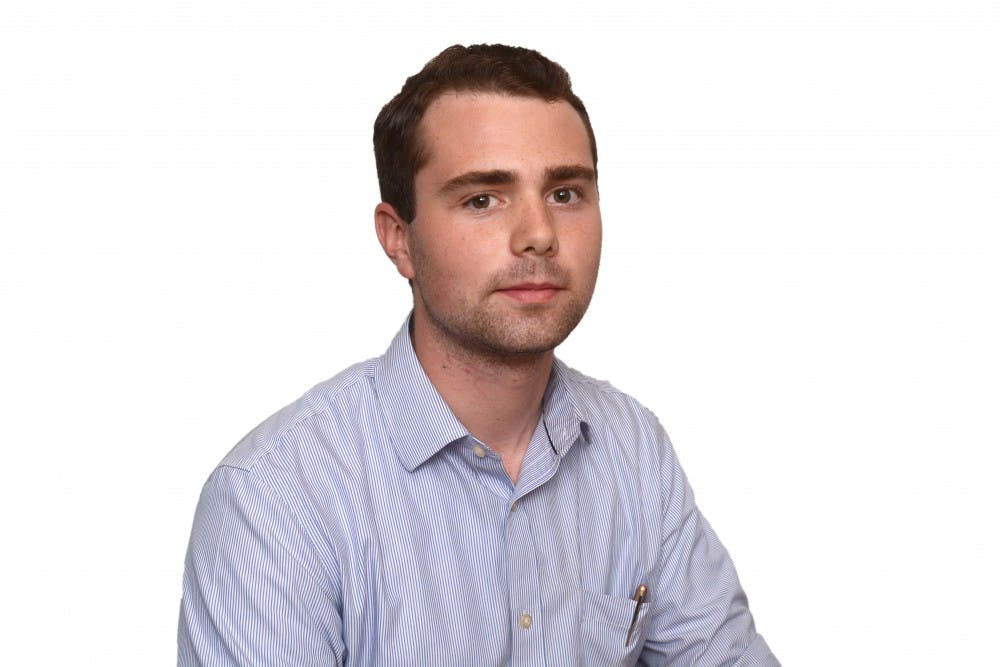“SOCIALISM REVIVED” proclaimed last Thursday’s print Daily Pennsylvanian headline, introducing a feature on a student group calling itself Students for a Democratic Society and Penn’s chapter of the eponymous ’60s radical group.
Despite the shamelessly sensational headline, the group’s birth is basically a non-event. There has long been a far-left community at Penn, active under a number of familiar names. So far, SDS draws its small membership from their ranks.
More significant, I think, is the impression apparently held by these not-so-newcomers that they are the ideological heirs of the ’60s SDS movement. Although the revived group’s president, College junior Lucas Lipatti, told The Daily Pennsylvanian that the new SDS is “not ... try[ing] to emulate” their bygone namesake, the choice to take up their name invariably points to a belief that they are fighting for the same values SDS professed generations ago.
I posit, however, that the paradigm of today’s campus activism, which Lipatti said they could see “New SDS” working within, has ideologically less in common with its nominal predecessor than its adherents might imagine.
Statistics blog FiveThirtyEight analyzed the collected demands of student protestors at 51 universities nationwide and compiled a list of the most common ones. In order of frequency, they were increased faculty diversity, mandatory “diversity training” or social justice classes, funding for cultural centers, collection of data on racial climate, expanded mental health programming, renaming of buildings and mascots, increased retention of minority students, expanded financial aid, apologies from administrators, expanded speech regulation and removal of school officials.
It’s easy to imagine yesteryear’s SDS supporting some of these demands, particularly those related to faculty and student diversity — the most common demand — and increased affordability. Some, however, jump out as perhaps more objectionable to a group that, while indubitably leftist, remained committed in principle to the foundational ideals of the American liberal (by which I mean “concerned with liberty”) tradition. They saw themselves not as the destroyers of an oppressive American value system, but as defenders of American aspirations from which the powerful of the day had strayed.
SDS’s manifesto, the Port Huron Statement, affirmed that “The goal of man and society should be human independence ... a quality of mind not compulsively driven by a sense of powerlessness, nor one which unthinkingly adopts status values, nor one which represses all threats to its habits ...”
Reading this, I can’t help but be skeptical that the student activism of today lives up to its lofty standards. Does the student who calls for expanded racial speech codes not display a “quality of mind which ... represses all threats to its habits?” Do insistences that building names, mascots, administrative titles and offhand remarks represent insurmountable barriers to equality not speak to an ethic “driven by a sense of powerlessness?”
The demand for ideologically-driven course requirements also seems to clash with the ethos of the Port Huron Statement, which blasted academia for indoctrinating students. “The actual intellectual effect of the college experience is hardly distinguishable from that of any other communications channel,” it charged, “passing on the stock truths of the day.”
Of course, the “stock truths” of 1962 were those of postwar cultural conservatism. Today’s academic bias, however, is toward the same identitarian progressivism many activists wish to see professed in mandatory classes. The demand for “diversity training” is one not to relinquish orthodoxy, but to double down on it.
Additionally, I see the attitude of today’s campus activists toward administrative power as divergent from that of their ’60s predecessors. Today’s activists, despite their deposition of a few university presidents, seem to view deans and vice provosts as their saviors in potentia. The Port Huron Statement, conversely, denounced “cumbersome academic bureaucracy” and its outsized ability to manipulate a university’s values, a power which they believed rightly belonged to students and faculty.
I don’t mean to pretend that the SDS of yesteryear shared in full my own political values or vision of higher education. They were a creature of the radical left; I am one, I like to think, of the principled center. I do believe, however, that those who gathered at Port Huron shared with me a sort of faith in the small-l liberal ideal, an essential dislike of dogma and coercion which seem to be uncomfortably wrapped up in 2016’s activist ethic. Perhaps this new group that claims their name seeks to recapture that ideal and bring it into today’s paradigm of campus activism. I hope so, but I fear not.
CORRECTION: A previous version of this article referred to SDS President Lucas Lipatti as "he". Lipatti uses they/them pronouns, and the article has been updated to reflect this.
ALEC WARD is a College junior from Washington, D.C., studying history. His email address is alecward@sas.upenn.edu. Follow him on Twitter @TalkBackWard. “Fair Enough” appears every Wednesday.
.
The Daily Pennsylvanian is an independent, student-run newspaper. Please consider making a donation to support the coverage that shapes the University. Your generosity ensures a future of strong journalism at Penn.
DonatePlease note All comments are eligible for publication in The Daily Pennsylvanian.





